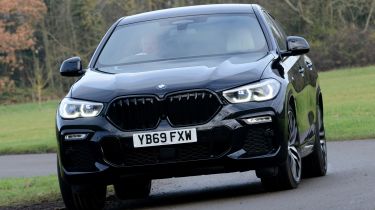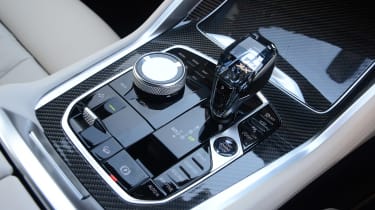BMW X6 review - MPG, CO2 and running costs
Diesels offer respectable economy, but running costs for the X6 are relatively high, particularly for company users

Diesel still rules in this class for fuel economy and CO2, particularly when there’s no plug-in hybrid available. That leaves the xDrive 30d as the most frugal of the X6 range, capable of up to 42.8mpg, depending on specification, with corresponding CO2 figures of between 172 and 188g/km. Next up is the 40d, whose 38.7-41.5mpg numbers are surprisingly not too far behind despite the extra output - it’s still using essentially the same 3.0-litre inline six diesel engine, just in a different state of tune. CO2 here is quoted as 179-193g/km, again depending on factors like wheel and tyre size.
The petrols will guzzle slightly more than their diesel counterparts both in the lab and on the road. For the 40i that means around 30mpg and CO2 of more than 200g/km, while the M50i registers 24.4-25.0mpg and up to 265g/km of CO2.
If the X6 M Competition topped the tree for performance then it’s somewhere underground in terms of economy, with slightly terrifying WLTP combined economy figures of 21mpg and entire clouds of CO2 exiting the tailpipes every kilometre. If you choose to exploit the X6 M's full performance then be prepared for the fuel gauge to drop rapidly.
Insurance groups
Insurance premiums will be high whichever X6 model you opt for. In fact, the 30d version in Sport trim is the only X6 not to be in the highest group 50, although you probably won't save too much as it sits in group 49.
Depreciation
Customers should see pretty decent residual values for the the X6 over three years and 36,000 miles of ownership. Our expert data suggests that, on average, the coupe-SUV should retain between 52 and 54 per cent over this period, with the 30d models performing the best.










